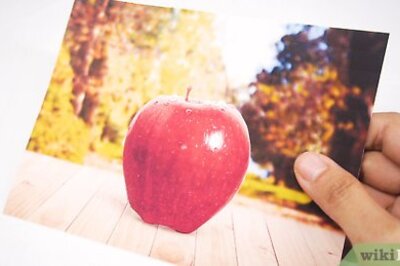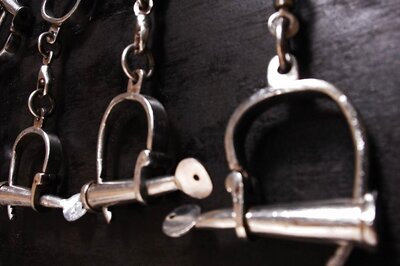
views
Canonical NYC Slang
The City For a New Yorker, this means Manhattan. People outside of NYC (but still on the East Coast) will use “The City” to mean New York City as a whole. Part of speech: Noun. Potential Origin: Manhattan was developed and built out much earlier than the other four boroughs, so Queens, Staten Island, Brooklyn, and The Bronx all felt less urban than Manhattan back in the day. Example: “I want to go into The City to shop for Christmas gifts this weekend.” NYC Example: “I hate going into The City from Yonkers. I have to take the bus to the 7, then I walk to the B, and the whole thing just takes forever.”
Bodega This is a corner store. There is still some dispute over this, but most New Yorkers will require a corner store to have a deli and be independently owned to qualify as a bodega (so a 7-11 or CVS wouldn’t count). Part of speech: Noun. Potential Origin: It’s the Spanish word for “storeroom” or “wine cellar.” Since NYC has a high Dominican and Puetro Rican population, it makes sense that New Yorkers would pick up this loanword. Fun fact, the word has been used in NYC since at least 1902. Example: “I need to stop at the bodega and pick up some toilet paper.” NYC Example: “Peel off at this exit. I need to swing by my man’s bodega and scoop some coffee and a bagel.”
Yooz This is “you” with a New York accent. It often stands in for “ya’ll,” as well. Part of speech: Pronoun. Potential Origin: It’s just an evolution of “you” with a fun accent. Example: “Yooz ever been to the Brooklyn Zoo?” NYC Example: “Yooz ever heard of the Brooklyn Zoo? … No, not the actual zoo. The Wu-Tang Clan song.”
Deadass This iconic phrase means “I’m serious” or “I’m not kidding.” It’s a modern update of “for real.” Deadass can also be used to simply emphasize an elocution. Part of speech: Interjection, intensifier, or adjective, depending on usage. Potential Origin: This phrase dates back to the early 1990s. It comes from hip hop. Example: “I love you. Deadass.” NYC Example: “I deadass love you, B.”
Pie This is pizza! Part of speech: Noun. Potential Origin: Pizza is actually pie. It has a crust on the bottom, so “pizza pie” is the technically correct description. Example: “Want to get some pie tonight?” NYC Example: “The best pie in The City is on Carmine Street. Joe’s can’t be beat.”
Fuhgeddaboudit This phrase might be on the way out due to its high meme-ability, but you’ll still hear it from time to time in certain corners of NYC. It’s just “forget about it” mushed together in a pseudo-Italian accent. Part of speech: It’s very weird to say it, but this is a non-transitive verb. Potential Origin: This is called an “eye dialect.” It’s when you combine words to look the way they sound when a speaker of a specific dialect uses them. Example: “Aye, I’m walking ‘ere. Fugheddaboudit. Look-et me, I’m a New Yawker.” NYC Example: “My Uncle Tone is so old school he still unironically says, ‘fugheddaboudit.’”
Schmear This is cream cheese! If you didn’t know it, New York has some great bagels. New Yorkers enjoy those bagels, sometimes with baconeggandcheese and sometimes with a little schmear! Part of speech: Noun (occasionally a verb). Potential Origin: This is a fun one. It was first used in Germany—it meant to lubricate a machine with oil or grease. As Germans emigrated to New York City in the early 1900s, they used the word to describe how bagel eaters would cover their bagels with cream cheese. The word was loaned out and the rest is history! Example: “Let me get a bagel with some schmear.” NYC Example: “What the guy in the ‘example’ above said!”
Stoop The “stoop” is the front porch—including the steps leading up to it. New Yorkers often don’t have yards, so you might kick it on the stoop if you want to catch some sun and enjoy the weather. Part of speech: Noun. Potential Origin: This is another European loanword. In Dutch, “stoop” means a small porch. Dutch settlers popularized the word among New Yorkers. Example: “I’m going outside to sit on the stoop and wait for the delivery.” NYC Example: “It’s finally nice out. Grab some beers out of the fridge and let’s go hit the stoop.”
Dumb “Dumb” means “very.” Notably, people (not necessarily in NYC) will use “mad” the exact same way. Part of speech: Adverb. Potential Origin: We have no idea. It doesn’t look like the origin of this one has been traced beyond the hip hop songs of the early 90s. Example: “I am dumb tired.” NYC Example: “I would hire Jim as my real estate agent, but he’s dumb young and I don’t know if he has the experience I need.”
Grill “To grill” means to stare at someone in a judgey or angry way. Part of speech: Verb. Potential Origin: We’re not sure. It’s likely hard to trace this one given the fact that there are two other popular slang terms associated with “grill”—a gold/diamond bit of jewelry for your teeth, and “to interrogate.” Example: “Why are you grillin’ me?” NYC Example: “I was on the 7 and this old head was grillin’ me the whole way home.”
B “B” just means, “bro,” “friend,” or “dude.” It’s a catchall term that you use to address someone in a friendly, informal way. Part of speech: Pronoun. Potential Origin: This is probably just a natural shorthanding of “bro” but we’re not entirely sure. Example: “How’s it going, B?” NYC Example: “Ayo, whatup B?!”
Tims/Timbs These are Timberland boots—a popular footwear option among the men and women who live in New York. Part of speech: Noun. Potential Origin: This shorthand first appeared in hip hop music from the 90s. It’s just a naturally smoother word to say than “Timberland.” Example: “I like those Timbs!” NYC Example: “Where’d you cop those Timbs?”
One “One” is sort of like, “goodbye dear friend” or “peace out.” It’s a sign-off used to express love and appreciation. This is a bit of an older term that you don’t hear as much among NYC youths these days, but it’s still relatively common. Part of speech: It’s used as a noun, although it can read as a verb. Potential Origin: This probably comes from “one love”—a common Jamaican way to say “goodbye.” NYC has historically been a popular destination for Jamaican immigrants. Example: “Okay, I’ll see you later. One.” NYC Example: “Deadass, I’ll catch you out in Bensonhurst next week. One.”
Brolic A “brolic” refers to someone who is extremely ripped and muscular. Notably, New Yorkers will occasionally use “brolic” to refer to anything that’s buff or overloaded. A stout pitbull or a hot dog loaded up with too much sauerkraut might be called a “brolic,” for example. Part of speech: Noun. Potential Origin: It’s unknown, but this might come from the Dragon Ball Z character Broly for reasons that might be obvious if you take a gander at the guy. Example: “I saw this super hot brolic at the gym yesterday.” NYC Example: “On God, every brolic in Brooklyn going to be after me if I wear a NY Giants jersey on the train.”
Regular coffee This is a standard drip coffee with milk and two sugars. If a New Yorker wants to order coffee without cream or sugar, they always specify “black coffee” or “plain coffee.” Part of speech: Noun. Potential Origin: We don’t know, but this is a fun little quirk of NYC lingo. There is an implication among New Yorkers that “regular coffee” is explicitly cheap, so it might come from bodegas listing it as “regular coffee” on their deli menus. Example: “Can I get a regular coffee?” NYC Example: “I don’t like their regular coffee. I prefer black at this bodega.”
Jakes The “jakes” are the police (aka, the po-po, 5-0, fuzz, heat, etc.). Part of speech: Noun. Potential Origin: We cannot confirm this with 100% accuracy, but it’s a fun story so we’re going to share it anyway. Apparently, when fire alarms were first invented, old New York buildings were all retrofitted to have fire alarms by the fire department. The only way to turn the fire alarm off was to use a J-shaped key. Anyone carrying these J-shaped keys became known as a “Jake.” The term likely rose to prominence with the film Chinatown (1974) where a character repeatedly refers to police as Jakes. Example: “I will call the jakes to file a noise complaint if you don’t turn this music down!” NYC Example: “That lady upstairs threatened to call the Jakes. She doesn’t know this is Bed-Stuy—they don’t come out for noise complaints.”
Baconeggandcheese Pronounced as one word (make it as mumbly as you can for authenticity), this is a bagel with bacon, egg, and cheese on it. These are a staple of any NYC morning commuter. Just pop into any bodega or stop by any halal cart and ask for a baconeggandcheese. Part of speech: Noun. Potential Origin: It’s just a description of the bagel. Example: “I would like a baconeggandcheese for breakfast today.” NYC Example: “Look God, you gotta get a baconeggandcheese from Nino’s over on 17th. They’re bussin’ for real.”
Bugging Normally pronounced buggin’, this just means someone is overreacting or behaving ridiculously. Part of speech: Verb. Potential Origin: There are a few potential theories. One is that it comes from “computer bug” (i.e., something acting incorrectly). It’s also possible that it comes from “bug” meaning “to annoy.” Example: “Why are you bugging out? It’s just little spider!” NYC Example: “Yo, that bug is bugging out. It’s all flying around and whatnot. Just be normal little bug.”
Schlep To “schlep” something is to carry it. Often, the word implies that you’re carrying or dragging something really oversized and obnoxious in a way that’s incredibly inefficient. As a noun, a “schlep” is something annoying to carry or cross, although this usage of the word is much less common. Part of speech: Verb or noun. Potential Origin: This comes from the Yiddish word “shlepn,” which means “to pull.” Example: “It is such a schelp to get across town.” NYC Example: “I just moved a block so I didn’t bother hiring movers, but I totally should have. Schelpping all this furniture across Avenue J is such a pain in the butt.”
Ock/Ocky An “Ock” refers to the person who makes sandwiches at their local bodega. Some New Yorkers will argue the person must be of Middle Eastern or Arabic descent to qualify as an “Ock” (as a Latin bodega worker is often lovingly referred to as a “papi.”) Part of speech: Noun. Potential Origin: A lot of people believe that it’s a reference to Rahim Mohamed, a famous NYC deli worker who makes sandwiches “the ocky way.” In reality, it’s an anglicization of the Arabic word “akhi,” which means “brother.” Example: “That’s my ocky over there. He’s the man with the sandwiches.” NYC Example: “All ockies are not created equal. The guy over on 75th can’t dress a bagel for nothing.
Modern Inclusions in the NYC Dialect
Slang is always evolving, and New York City is no exception. Here are some of the more popular slang terms that are newer to the Big Apple: Dayroom — Someone who is so quiet and vague that they’re confusing. Say less — To understand what someone said. Heard — To understand what someone said. Yes, it’s the same thing as “say less.” Old head — An older person, typically one who is a fixture in the neighborhood or community. (This is actually more of a Philly thing, but it seems to have migrated to NYC (which is only an hour away or so)) No cap — I’m serious. Bev — Beverage. Muddy — When you look gruff and unkept. Link — To meet up. Yerr — Basically, “yo” or “how are you.” Bet — Short for “you bet.” It’s basically a confirmation that you agree or understand. Frontin’ — Pretending or lying. Lit — Feeling drunk, high, or overly excited. Whip — A car. Pull up — Arrive or go somewhere.




















Comments
0 comment